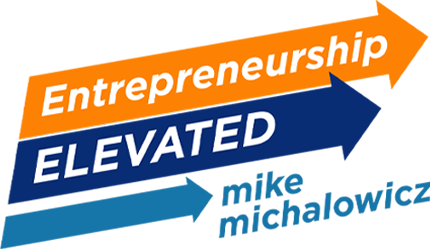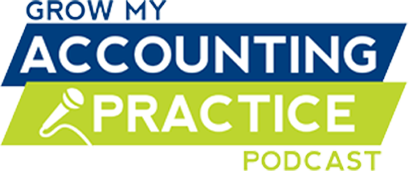Over the last decade, thought leaders and small business coaches have been on the rise. If you’re like me, you may be inundated with emails and ads for TED talks, keynote speeches and small business books from thought leaders offering to help your small business increase revenue.
I mean, those speakers and authors must be the authorities, if they’re information sharing at that level, right?
At some point, you’ve probably wondered if you should give some keynote speeches and/or publish a book of your own.
The answer is a resounding yes.
If you’re an entrepreneur or small business owner you likely have a story to share about how you got to where you are today. And, if you want to establish yourself as an authority in your niche, the two best ways to do that are to speak or write, sharing your small business solutions. You should demonstrate you have expertise in your particular field, you earned that. Sharing your journey and your systems with others so they can make their own business transformation is incredibly generous and empowering. (It increases your small business revenue by leaps and bounds too.)
Thought sharing is serving. And I think we all want to do that.
Anyone can make a reel or post a graphic on social media. That doesn’t quite deem you as an expert though. What you need to really stand out is to be invited to give a TED talk, book speaking engagements or become a small business author and publish a book. While I can’t directly get you hired for an event or your book published tomorrow, I can share some lessons I learned as you forge your path toward becoming a small business industry expert and leader.
The benefits of becoming a keynote speaker and small business author:
My first speech was a bit of a bumble, all things being honest, but I learned through experience, and today I am a sought after keynote speaker and invited to small business events all around the world. When it comes to writing, it seems that each small business book I write for entrepreneurs inspires another. My motivation is hearing testimony and stories from fellow entrepreneurs who tell me one of my systems saved their business. From there, I became inspired to serve more. The results are the creation of another small company, scalability of that company, increased revenue and profitability, and a sustainable business that achieves my desired impact.
If you want to do the same, the opportunities are there for you. Here are some pointers I’ve learned the hard way.
Do’s and don’ts of keynote speaking:
Do:
- Keep it interesting – without gimmicks. You are commanding the attention in the room for the time you’re on the stage, be it fifteen minutes or two hours. Be prepared and have an outline in mind of how the flow of your small business keynote speech will go and exactly what the message of transformation will be.
- Engage through storytelling. Imagine you went to a keynote just to watch someone’s slide show. Would you feel a connection with that speaker? The most effective way I have connected with small business owners is through storytelling. And as you may or may not know, it’s my story I tell. Not the story where I tell people who have done what to be successful. Nope. The story that most entrepreneurs and small business owners come out to hear me tell is about my failure. It’s a starting point, and all success after that failure is even sweeter. When you share how you overcame business pitfalls and how you can help others do the same, you are serving. That’s the sweet spot.
- Acknowledge that public speaking is a privilege. When I hop up on that stage I am of course a bit nervous. I’m excited about a message I want to share. I can’t wait to connect. I’m ready! I also have to remember to stay humble, and recognize what an honor it is to be chosen to speak, and that an audience chose to come listen. Your keynote speeches must incorporate a high level of reverence. Remember, speaking to an audience is the greatest privilege.
- Remember it’s a performance. You must see this as a performance. It will modify your delivery and keep you from getting overly friendly or informal. I know. It’s a delicate balance. You want to be relatable, just remember you’re the authority in your small business industry and that’s why you’re there.
- Speak to one person in the audience. This is the person who can best be served by your message. Too often we want to speak to the masses, which is a noble intent. But, your messaging will be diluted if you are trying to speak to many needs. By speaking to a few needs, your message will create greater impact and therefore transformation for the audience members who truly need your help in real time.
Don’t:
- Sell. I worry that some speakers, accidentally or not, use their speaking privilege by trying to sell. Even if it fits into the topic, selling during a speaking event isn’t something I endorse. You’ve got their attention the entire time you’re on the stage. Give them something they need there and then. Through this you’ll garner a reputation for someone who cares about people, not money – which will only increase your leads.
- Speak too fast. I notice when I speak casually with people I tend to speak faster than if I’m on stage. Make sure your cadence is clear and concise.
- Jokes. I love pranks and well placed jokes as much as the next person, so I’m not going to say incorporating jokes in your keynotes is a bad idea. What I will say however, is to ensure that your jokes are well placed regarding subject and timing.
Keeping these things in mind will help modify your speech and result in the best delivery of your ideas so they are actionable for your audience. When your TED talk or keynote speech concludes, your audience should leave feeling energized and empowered by what you shared, and be able to apply one of your small business strategies to their own business that day.
I know it can feel like a chicken or the egg conundrum, deciding if you should perform keynote speeches or publish a book. It’s up to you and what you’re most comfortable with. And, it doesn’t necessarily need to be an either or situation.
Do’s and Don’ts of Small Business Authorship:
Speaking of eggs, let’s get your ducks in a row. If you want to get a small business book out there, I will be your biggest cheerleader, pom poms, megaphone and all. Here are some lessons I learned about small business authorship that I like to share so others can benefit:
Do:
- Know your audience. First rule of the Small Business Author Club (or for any writer) is to know who you’re writing for. When I first started writing I wanted to save all the entrepreneurs and small business owners from all the potential challenges. I was going to white knight it. You know, swoop in, save millions. What I learned through writing small business help books is you can’t write one book for everyone. Just as aforementioned, you won’t have optimal impact or spark transformation with blanket statements. Know who you are writing for, what their need is, and give them a solution that’s tangible in order to create their own success story. There will likely be more than one person who benefits. Get that reader statement down pat before you begin writing and your journey will go much more smoothly.
- Immerse yourself in storytelling. Sure, it’s a business book, but you want your readers to stay awake past the first few pages. How? By connecting. By engaging. By getting vulnerable through storytelling. You don’t have to air out your dirty laundry if you don’t want to, but a little laundry? That can be a great hook! (So can your content, so, you know, balance.)
- Systems and solutions. Now that you’ve explained you’ve been there and done that, illustrate how you created systems and solutions that your readers can also apply to help their own business for increased revenue in their own small business.
- Get organized and educated. There are divisions to be made. Make sure you know how to create a reader statement, manuscript, if you want to go the traditional publishing route, or choose hybrid or self publishing. Do you have a launch plan? I know this can sound overwhelming, but it doesn’t have to be. Being unorganized, that will be a challenge.
Don’t:
- Get too personal. I realize I said to tell stories and that it’s ok to include personal experiences. Be careful to create a balance here. When people pick up a book about your small business or a system you’ve created for entrepreneurs, a long personal story could get awkward. A short story is fine. Try to keep the emotions and trauma in check. Otherwise, you’re leaning toward another genre of book entirely.
- Feel you have to go it alone. This is a name that changed my authorship journey: AJ Harper. AJ is my co writer extraordinaire and I wouldn’t be where I am today without her. I’m an ideas person, maybe you are too. When you have a co writer whose expertise is putting the pieces of your idea puzzle together, you simply cannot lose. There are many co writers who do not demand their name be included and some who prefer it. That part is up to you. Know that asking for help only means you’re a caring writer focused on your goal (and not your ego).
- Procrastinate. There will never be the perfect time. It’s not too soon and it’s not too late. If you’re a small business owner and entrepreneur you’ll always be busy. So, get started. Little by little. I created writing sprints for my team and I so we are guaranteed to have at least a few pages written each day. They don’t have to be perfect. That quest for the perfect time, perfect words and perfect perfect isn’t going to come to fruition. Don’t wait. Do!
Personal benefits of small business keynote speeches and books:
After you complete a few speaking events or publish a book regarding your small business, you’ll have positioned yourself as an authority, increased additional revenue, inspired others, honed your leadership skills, promoted soft selling, and developed the skill of persuasion. To boot, you’ll feel Improved confidence, increased critical thinking and will be inspired to research more ways to serve through your small business.
In the end, presenting keynote speeches and writing books are two of the most impactful ways to share your knowledge and help others. And isn’t that what we’re all here for?
I am wishing you health and wealth always.
-Mike
PS.
- If you’re entertaining the idea of giving keynote speeches, or even if you’re a seasoned speaker, consider joining John Bates and I to learn how to give the best darn speech ever and increase your revenue. Click here to learn more now.
- Before there were speaking events there was one book that put me on the map. Join my co-writer, publishers, and agent in the Next Level Author Workshop to learn how to get your book out there.
- We entrepreneurs need to stick together! I have created courses, workshops and mastermind groups to leverage the knowledge of entrepreneurs and share information to help you make the most impact in your small business. Check them out here.










